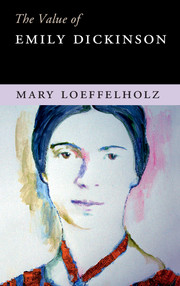4 - Her American materials
Published online by Cambridge University Press: 05 June 2016
Summary
What part of Dickinson's value lies in her identity as an American writer? This question would not have seemed strange to Dickinson herself, nor to most of her English-speaking contemporaries on either side of the Atlantic. American literary culture in the years leading up to the Civil War was much preoccupied with asserting its independence of British models and British tutelage; the emergence of an original American literature, it was frequently argued, would ratify the political independence asserted by Great Britain's North American colonies in 1776, consolidated in the constitution of 1789, and defended in the war of 1812. The call for a new American literature was already old when Ralph Waldo Emerson, in his essay on “The Poet” (1844), lamented that
We have yet had no genius in America, with tyrannous eye, which knew the value of our incomparable materials, and saw, in the barbarism and materialism of the times, another carnival of the same gods whose picture he so much admires in Homer; … Yet America is poem in our eyes; its ample geography dazzles the imagination, and it will not wait long for metres.
Around 1861, Dickinson copied out a poem that may be her most self-conscious contribution to the discourse of American literary nationalism – her most explicit attempt to assess the aesthetic value of her American materials. Contra Emerson, however, this poem starts from the premise that the distinctive value of those materials can only be known comparatively:
The Robin's my Criterion for Tune –
Because I grow – where Robins do –
But, were I Cuckoo born –
I'd swear by him –
The ode familiar – rules the Noon –
The Buttercup's my whim for Bloom –
Because, we're Orchard sprung –
But, were I Britain born,
I'd Daisies spurn –
None but the Nut – October fit –
Because – through dropping it,
The Seasons flit – I'm taught –
Without the Snow's Tableau
Winter, were lie – to me –
Because I see – New Englandly –
The Queen, discerns like me –
Provincially –
(Fr 256A, Fascicle 11)Dickinson's initial metaphor presents her as the simple originary product of New England nature, a lyric bird “growing” and singing in her native landscape as naturally as “Robins do.”
- Type
- Chapter
- Information
- The Value of Emily Dickinson , pp. 77 - 98Publisher: Cambridge University PressPrint publication year: 2016

